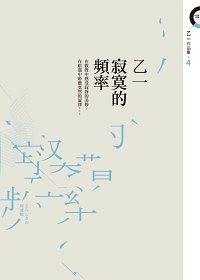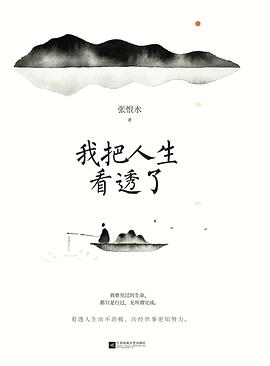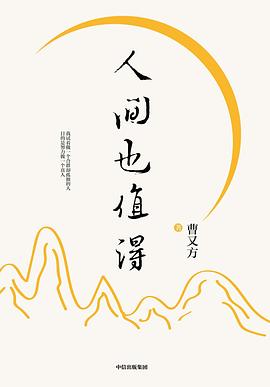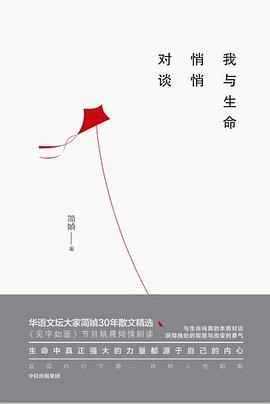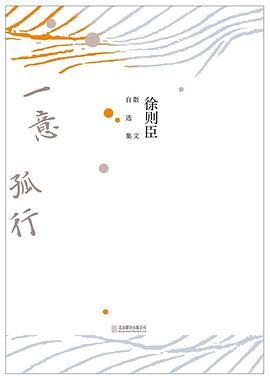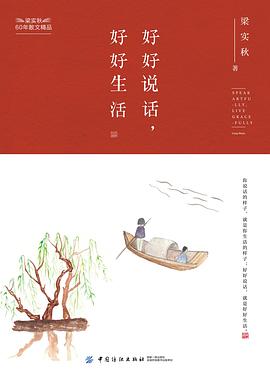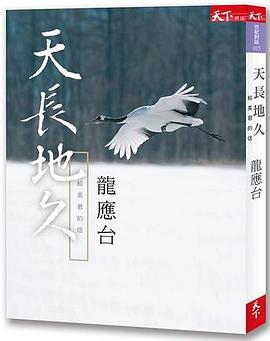

具体描述
“Murakami is like a magician who explains what he’s doing as he performs the trick and still makes you believe he has supernatural powers . . . But while anyone can tell a story that resembles a dream, it's the rare artist, like this one, who can make us feel that we are dreaming it ourselves.” — The New York Times Book Review
The year is 1984 and the city is Tokyo.
A young woman named Aomame follows a taxi driver’s enigmatic suggestion and begins to notice puzzling discrepancies in the world around her. She has entered, she realizes, a parallel existence, which she calls 1Q84 —“Q is for ‘question mark.’ A world that bears a question.” Meanwhile, an aspiring writer named Tengo takes on a suspect ghostwriting project. He becomes so wrapped up with the work and its unusual author that, soon, his previously placid life begins to come unraveled.
As Aomame’s and Tengo’s narratives converge over the course of this single year, we learn of the profound and tangled connections that bind them ever closer: a beautiful, dyslexic teenage girl with a unique vision; a mysterious religious cult that instigated a shoot-out with the metropolitan police; a reclusive, wealthy dowager who runs a shelter for abused women; a hideously ugly private investigator; a mild-mannered yet ruthlessly efficient bodyguard; and a peculiarly insistent television-fee collector.
A love story, a mystery, a fantasy, a novel of self-discovery, a dystopia to rival George Orwell’s— 1Q84 is Haruki Murakami’s most ambitious undertaking yet: an instant best seller in his native Japan, and a tremendous feat of imagination from one of our most revered contemporary writers.
作者简介
村上春树 著名作家。 1979年,《且听风吟》出版以来,寂寞忧郁的文字、清淡闲适的情节,尤其是独特新颖的都市感觉的写作文风,令万千读者如痴如醉。随着《挪威的森林》、《舞!舞!舞!》、《海边卡夫卡》等作品的陆续出版,逐渐赢得世界性的崇高声誉,最终形成“村上春树文学山系”。 2009年,集毕生文学之大成的巅峰杰作《1Q84》隆重出版,以席卷之势荣登日本所有畅销榜首,在整个日本、东亚乃至全球都引起巨大反响。正如媒体评论:“如此重大而复杂的题材,几可视为日本文学在新千年的伟大开篇。”
目录信息
读后感
关于小说的标题,村上春树曾说是向乔治·奥威尔的《1984》致敬,因为“9”和“Q”在日文中的发音相似。因此,如果你了解乔治·奥威尔的《1984》,你会比较容易了解村上春树的《1Q84》。 关于《1984》 1948年,45岁的英国作家乔治-奥威尔开始写作他短暂一生中的最重要...
评分关于小说的标题,村上春树曾说是向乔治·奥威尔的《1984》致敬,因为“9”和“Q”在日文中的发音相似。因此,如果你了解乔治·奥威尔的《1984》,你会比较容易了解村上春树的《1Q84》。 关于《1984》 1948年,45岁的英国作家乔治-奥威尔开始写作他短暂一生中的最重要...
评分 评分区分不是原来那个1984年而是现在这个1Q84年的标志是:天空浮着两个月亮。黄色的大月亮,和绿色的小月亮。 村上君的所有中文译本都一一看过,这次的新作《1Q84》我认为是村上的长篇作品里条理最清晰的一部。而且可以感受到村上已经找到了属于他特有的写作手法,并且越来越熟练...
评分《1Q84》中故事的单薄,人物的平面化,悬念的拖延,甚至它的出版方式,都像极了电视剧。过去那个让人想起即兴爵士乐和大卫·林奇电影,那个写出过《世界尽头与冷酷仙境》,那个用内敛、自嘲和幽默冷冷对抗主流的村上春树,已经不知所踪。 首先我想声明,我是村上春树...
用户评价
《1Q84》最打动我的地方,在于它对于“孤独”和“连接”的深刻描绘。青豆和天吾,他们都是在各自的世界里独自前行的人,却又冥冥之中被某种看不见的力量所吸引。这种连接,超越了语言,超越了空间,甚至超越了现实。我在这两个角色的身上,看到了现代社会中许多人内心的写照——渴望被理解,渴望被爱,却又常常感到孤立无援。村上春树用他细腻的笔触,将这种复杂的情感展现得淋漓尽致,让我不禁反思自己在人际关系中的连接与疏离。
评分第一次翻开《1Q84》,就被它铺陈开来的独特氛围所吸引。故事的主人公青豆,她如同一个孤独的刺客,在那个看似寻常却又暗流涌动的世界里,执行着她的使命。而天吾,这位才华横溢的作家,他的命运也似乎早已被某种无形的力量所牵引。他们的相遇,仿佛是宇宙中两颗星辰的碰撞,激荡出璀璨的火花,也点燃了整个故事的脉络。我在这两个角色身上看到了人性的复杂与坚韧,看到了在绝望中寻找希望的勇气,也看到了爱情的力量如何跨越时空的阻碍,最终汇聚成一股强大的生命洪流。
评分这本书给我最深刻的印象,是它所营造的那种“非现实”的现实感。1Q84年,那个有两个月亮的夜晚,那个看似荒诞不经的世界,却又如此真实地触及了我们内心最柔软的部分。我开始思考,我们所认为的“现实”究竟是什么?我们所经历的,是否也可能只是被某种“非现实”所包裹?村上春树巧妙地将哲学思辨融入故事之中,引导读者去质疑、去探索,去发现隐藏在表象之下的真相。这种挑战读者思维定势的写作方式,让我对作者的智慧感到由衷的赞叹。
评分《1Q84》中的“宗教”和“思想”元素,也为我带来了很多启发。那些关于“宗教”的描绘,以及“思想”的辩论,都让我对世界的运行规律有了更深层次的思考。我开始审视自己所处的环境,以及我所持有的观念。村上春树并没有给出明确的答案,而是留下了一个个耐人寻味的引子,鼓励我们自己去寻找答案。这种开放式的叙事,让我感觉自己不仅仅是一个读者,更是一个参与者,一个与作者一同探索未知世界的旅伴。
评分最终,我不得不说,《1Q84》是一部具有划时代意义的作品。它不仅仅是一部小说,更是一次关于生命、关于爱、关于存在的深刻探索。我在这部作品中找到了共鸣,找到了启迪,更找到了力量。村上春树用他独特的才华,为我们构建了一个既令人不安又充满希望的“1Q84年”,在这个年份里,我看到了人性中最闪耀的光辉,也看到了生命中最坚韧的力量。这本书已经深深地烙印在我的心中,成为我生命中不可磨灭的一部分。
评分读完《1Q84》这部作品,我久久不能平静。村上春树用他独特的笔触,构建了一个平行于我们现实世界的“1Q84年”,一个充满奇幻色彩,又深刻映射着我们内心深处恐惧与渴望的时代。这本书不仅仅是一个故事,更像是一次灵魂的探险,带领读者穿梭于现实与虚幻的边界。我惊叹于作者构建世界的宏大与细致,从空气中的“微弱月光”,到那些神秘莫测的“胡子”,每一个细节都充满了象征意义,引导着我们去思考世界的本质,去探究个体存在的意义。
评分读《1Q84》的过程,就像一场缓慢而深入的冥想。我被书中缓慢推进的节奏所吸引,被那些看似不经意的细节所打动。村上春树的文字,如同涓涓细流,缓缓地渗透到我的内心,改变着我对世界的认知。我开始更加关注生活中的点滴,更加体会那些被我们忽略的美好。那些关于“爱情”的描绘,虽然不是轰轰烈烈,却充满了深刻的羁绊和坚定的信念,让我看到了爱情最纯粹的模样。
评分我尤其喜欢《1Q84》中对细节的描绘。每一个场景,每一个人物的动作,甚至每一句对话,都仿佛经过精心打磨,充满了艺术感。无论是青豆在暗夜中的潜行,还是天吾在书店里与编辑的交流,都栩栩如生,跃然纸上。更重要的是,这些细节并非孤立存在,它们共同构建了一个宏大而完整的叙事体系。我感觉自己就像置身于那个“1Q84年”的世界,呼吸着那里的空气,感受着那里的情感。这种沉浸式的阅读体验,是许多作品都无法给予的。
评分《1Q84》是一部需要静下心来品味的杰作。我反复回味书中的许多段落,每一次阅读都能发现新的惊喜。那些象征性的意象,那些深邃的哲理,都像是一颗颗种子,在我心中生根发芽,不断地滋养着我的思想。我开始更加珍惜那些看似平凡的生活,更加懂得去感受那些被我们忽视的情感。村上春树通过他的文字,为我打开了一个全新的视角,让我以更广阔的胸怀去拥抱这个复杂而又充满魅力的世界。
评分《1Q84》对我来说,与其说是一部小说,不如说是一面镜子,它折射出的是我们内心深处那些难以言说的情感。青豆的果敢与决绝,天吾的迷茫与追寻,都让我感同身受。在故事的推进过程中,我仿佛也一同经历着他们的困惑、恐惧,以及最终的释然。那些关于“小人”的描绘,以及“月亮”的异象,都营造出一种令人不安却又充满魅力的神秘感。这种神秘感并非是故弄玄虚,而是村上春树对现实世界某种隐喻的表达,是对生命中那些无法解释的现象的探讨,是对我们自身潜藏欲望的揭示。
评分真特马好看啊!苦逼生活调味品 两周搞定。。。
评分其实我不太喜欢他的所谓魔幻题材,很多不合理的情节用这个来解释。虽然事情发生在城市,题材也不算宏大,但牵扯进来越来越多的人后,结局却和《飞鸟环形记》一样又是虎头蛇尾,little people和一些很重要的人都没有交代就完了,好像作者编着编着累了就草草了事一样。
评分其实我不太喜欢他的所谓魔幻题材,很多不合理的情节用这个来解释。虽然事情发生在城市,题材也不算宏大,但牵扯进来越来越多的人后,结局却和《飞鸟环形记》一样又是虎头蛇尾,little people和一些很重要的人都没有交代就完了,好像作者编着编着累了就草草了事一样。
评分説明しなければわからないことは、説明してもわからない
评分真特马好看啊!苦逼生活调味品 两周搞定。。。
相关图书
本站所有内容均为互联网搜索引擎提供的公开搜索信息,本站不存储任何数据与内容,任何内容与数据均与本站无关,如有需要请联系相关搜索引擎包括但不限于百度,google,bing,sogou 等
© 2026 book.wenda123.org All Rights Reserved. 图书目录大全 版权所有

